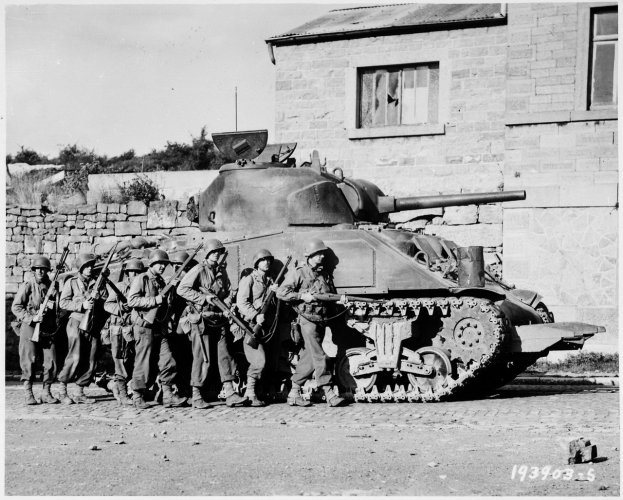Exactly.
The MPF needed to fit within the existing IBCT logistics/engineering support. Needed to be recoverable from a HEMTT Wrecker, uses the same bridges as the HEMTT PLS, etc. It can probably be supported off a HEMTT workshop vehicle, or maybe the M113-based wrenchmobile (I guess it'd be an AMPV-based wrenchmobile now).
Fitter vehicles aren't budgeted for, unfortunately.
For some reason it also needed to be "protected," and the chassis they chose was really volume inefficient, which meant high mass. An M8 AGS with reactive armor would have been lighter for the same protection. Could probably have a baseline protection level of 14.5mm or 30mm APCBC, and addon armor of PG-29, without breaching 25 tons. So not much heavier than an -A2 Bradley.
US were involved in counter insurgency wars.
The problem at hand is that deployable infantry brigades are weak against peers. Tank company gives them weight in defense, and at least some field offensive&ground maneuver capability.
Shipment of abrams over via sea to, i don't know, Philippines, should the need for land operations there arise, will already be accepted by a PLA liason officer.
IBCTs would be working fine in Ukraine. ABCTs not so much, because tanks cannot survive in a battlefield saturated with anti-tank weapons, as is consistently hammered home by the only LSCO in the world. Tanks in Ukraine are used as ersatz howitzers or infantry guns, firing from several kilometers, and IFVs similarly. Actual attacks are done dismounted or with light armor vehicles or trucks like MRAPs. Strykers might be a good middle ground, if they were cheap, but they're not.
That is the standard by which America should be thinking about a war with the PRC. It's two near-peer states clobbering each other. Unfortunately America is thinking in terms of Cold War fights, when really it should be thinking more European, and purchasing IMVs built on FMTV and MRAPs for the IBCTs.
It became a medium tank adopted for the fire support role, with Abrams being the heavy. People do not want to call it a tank, but it’s doing everything tank, just a bit less so. A fire support vehicle does not need an HV tank gun if it’s role is actually fire support.
The actual problem is that a 40+ tonner and a 60+ tonner have functionally zero difference in logistics requirements and strategic mobility, which was ostensibly the main reason behind the MPF, because just giving an IBCT an M1 tank company is "silly" or something. You might need an extra fueler or two to support an Abrams company compared to a diesel Booker company I guess? Have fun with the Hercules section, the contact trucks, and the HETs.
At that point you might as well just use an Abrams anyway since you can only bring one Booker by Globemasters anyway.
Meanwhile AGS was already designed exactly for this job, air drops aside, because it was the intended fire support vehicle of the original BCTs from 9th MTZ going back to the 1970s. A nice, compact, relatively mobile vehicle under 25-tons, with protection from 30mm fire and PG-7VL, and you could get PG-29/PG-7VR protection with modern armor schemes for a similar mass. Unfortunately, AGS is cursed to wander the Earth forever.
Whoever let Booker go through instead of XM1302 should be fired.



